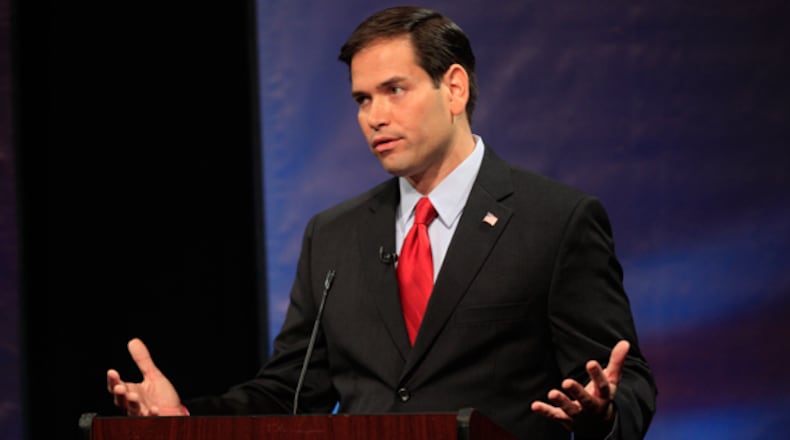OK, this is what I don't get.
U.S. Sen. Marco Rubio strongly opposes gay marriage, believing that marriage is and ought to be between a man and a woman. That part I understand. However, he also says that he would have no problem attending the gay wedding of a family member, friend or co-worker.
"If it's somebody in my life that I love or care for, of course I would," Rubio told a reporter from Fusion. "I'm not going to hurt them simply because I disagree with a choice they've made or because I disagree with a decision they've made, or whatever it may be. Ultimately, if someone that you care for and is part of your family has decided to move in one direction or another or feels that way because of who they love, you respect that because you love them."
That's a sensible, respectful approach, and I have no reason to doubt that it is sincerely held. That's what makes it so confusing.
On a personal level, as Rubio puts it, he's not going to hurt someone "simply because I disagree with a choice they've made." So how is it that as a politician, he is more than willing to use the vast power of government to deny that same someone -- and many thousands of other, faceless someones -- the right to even have that ceremony in the first place?
It makes no sense. Rubio is willing, as an individual, to honor the choices of another individual even if he disagrees with them, as a matter of respect and love. He is not going to "hurt them" by refusing to attend. Apparently he believes that would be mean and spiteful.
But he is not willing, as an elected representative, to show those very same people that very same respect. To the contrary, he is willing to use government as a crude implement to enforce his own preference and deny others a choice that is the most intimate choice that we as human beings can make. Rubio's willingness to use the law in that fashion has even extended as far as trying to outlaw adoption by gay couples.
Rubio attempts to soften his position a bit by saying that the question of same-sex marriage ought to be decided at the state level, through the democratic process, rather than be decided in the courts. As a pure question of process, that is certainly a defensible position, although according to the Christian Coalition, in the past Rubio has supported a constitutional amendment that would outlaw gay marriage nationwide.
In the end, though, trying to deflect attention to the process, and away from the underlying issue, is a copout. Even at the state level, Rubio would oppose making gay marriage legal. If his home state of Florida put the question to a public referendum, Rubio has made it clear that he would fight it, and in fact he has already campaigned against its legalization in other states.
I suppose what's happening here is that Rubio understands the pain and sense of rejection that he would inflict on a personal level by refusing to attend a gay wedding. As a decent person, he's not comfortable doing that, not to someone whom he loves and respects. But somehow he does not understand that when we as a state, nation or society outlaw gay marriage, we impose that pain and a sense of rejection on a much larger, more pervasive scale. Somehow, something is preventing him from seeing what ought to be obvious.
About the Author
Keep Reading
The Latest
Featured


